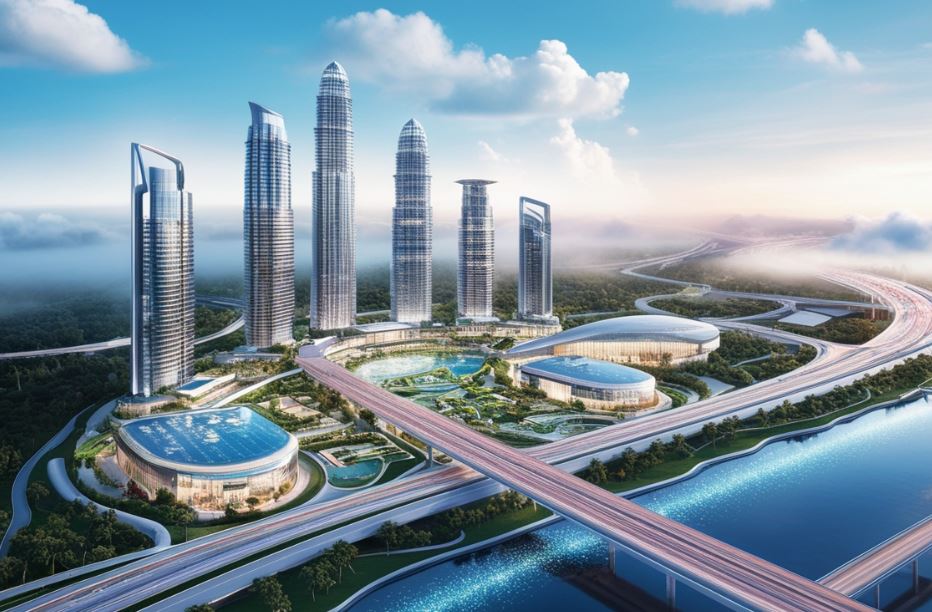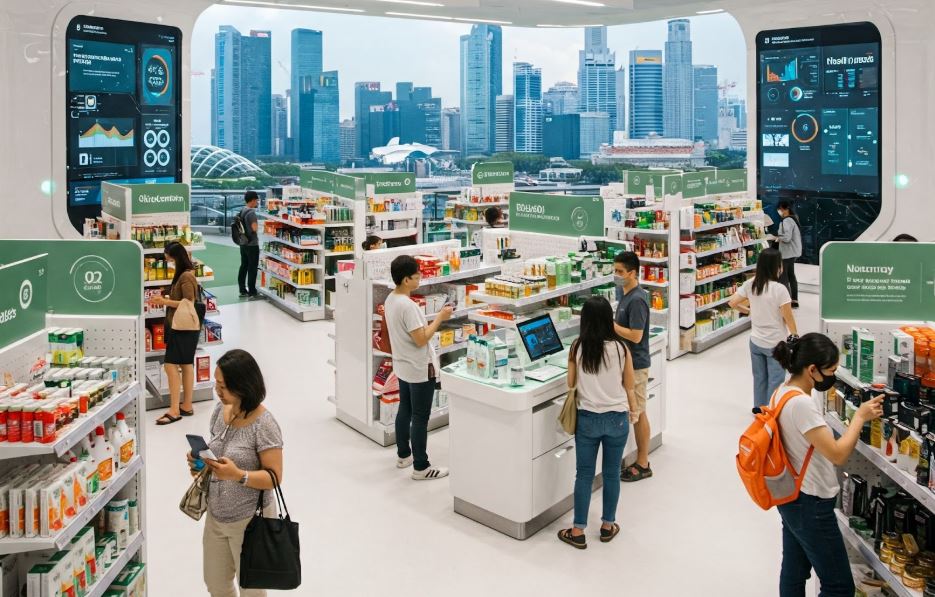Key sectors that are expected to benefit from Johor-Singapore SEZ

The Johor-Singapore Special Economic Zone (JS-SEZ), formalized on January 7, 2025, is set to bring growth across multiple industries and enhance economic collaboration between the two regions. The new zone aims to attract 100 projects over the next decade, with a focus on aerospace, electronics, chemicals, medical devices and pharmaceuticals.
The SEZ, which contributed to bilateral trade exceeding US$78.59 billion in 2024, is expected to benefit a range of sectors, including construction, manufacturing, data centers, renewable energy and more.
Key Industries and Outlook
Construction
The construction sector is expected to thrive, fueled by large-scale infrastructure projects like the Rapid Transit System (RTS) Link connecting Singapore’s Woodlands to Johor’s Bukit Chagar. Transit-oriented developments and mixed-use projects around RTS stations are also anticipated. These projects aim to improve connectivity and stimulate economic activity, focusing on enhancing one of the world’s busiest land borders.
Manufacturing
Manufacturing, the main basis of the SEZ’s strategy, is set to benefit from complementary strengths offered by Singapore and Johor. Singapore’s advanced facilities support high-tech manufacturing, while Johor’s strategic location, established infrastructure and competitive costs attract foreign direct investments. Key industries such as electronics, semiconductors and medical devices will have better chances for growth.
Technology and Data Centers
Johor’s growing role as a data center hub is set to be reinforced through the SEZ. Facilities like Sedenak Tech Park and Nusajaya Tech Park are strategically positioned to attract cornerstone investments in hyper-scale operations. The SEZ also provides significant opportunities for tech manufacturers, enhanced by targeted tax incentives and competitive costs.
Industrials and Infrastructure
The SEZ emphasizes green energy initiatives, with a focus on cross-border electricity trade. Malaysia’s Tenaga Nasional Berhad and Singapore’s Sembcorp Power have already collaborated through the Energy Exchange Malaysia (ENEGEM) pilot project, which facilitates renewable electricity supply. Expanding sustainable practices is a key priority in achieving environmental targets.
Logistics
Logistics operators will benefit from streamlined cross-border processes. Plans include digitized cargo clearance systems and a QR code-based passenger clearance system at checkpoints, which will reduce delays. These measures aim to address challenges such as manpower shortages and lengthy travel times during peak periods while improving trade efficiency.
Banking and Finance
Banks with a strong regional presence are ready to support businesses in the SEZ. Financial institutions, including dedicated teams in Singapore and Malaysia, are providing tailored advisory services to help startups and SMEs establish and expand their operations within the SEZ.
Tourism
The completion of the RTS Link will make tourism more accessible between the two regions. Most famous destinations such as Universal Studios Singapore, the Singapore Grand Prix, Legoland Malaysia and Johor Premium Outlet are expected to see increased visitor traffic, benefiting local economies on both sides.
Education
The SEZ’s focus on creating 20,000 skilled jobs over the next decade will drive demand for education services. International schools and universities are likely to expand in Johor, catering to the arrival of skilled workers and their families.
Electrical and Electronics
The electrical and electronics sector is a priority area for the SEZ. Singapore’s leadership in advanced manufacturing, including semiconductors and wafer chips, complements Johor’s established electronics industry, which could expand beyond back-end processes with SEZ support.
Proposed tax incentives
To attract more investments and boost the Johor-Singapore Special Economic Zone, Malaysia has unveiled a package of tax incentives.
Key measures include a preferential 5% corporate tax rate for up to 15 years for companies investing in advanced industries such as artificial intelligence (AI), quantum computing, medical devices and aerospace manufacturing. Additionally, eligible knowledge workers in the zone can benefit from a reduced personal income tax rate of 15% for 10 years.
It also features customized benefits for businesses operating in flagship areas within the SEZ. Johor’s state government has introduced entertainment duty reductions to complement broader efforts to boost tourism and leisure-related investments.
With these incentives, the JS-SEZ aims to generate higher-income job opportunities, attract cutting-edge industries and strengthen cross-border collaboration between Johor and Singapore. By 2030, the zone is expected to contribute RM117.1 billion annually to Malaysia’s economy.



